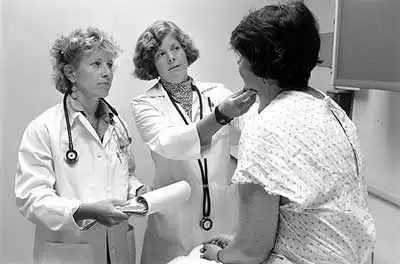Celiac.com 05/25/2015 - Many people who are concerned that they may have celiac disease are not sure where to begin. Many people simply stop eating gluten and call it a day, choosing to avoid what can be a long, drawn-out process of getting an official diagnosis.
 If you suffer from any of the 10 Most Common Complaints of Celiac Patients, you might want to consider the possibility of celiac disease.
If you suffer from any of the 10 Most Common Complaints of Celiac Patients, you might want to consider the possibility of celiac disease.
Celiac.com Sponsor (A12):
Most doctors, however eager they may be to render proper treatment, are bound by clinical treatment protocols and guidelines that limit the circumstances under which they can order blood screens for celiac disease.
So, when should doctors test people for celiac disease? According to the American College of Gastroenterology's (ACG) clinical guideline on diagnosis and treatment of celiac disease, people should be tested for celiac disease if they have:
- Signs and symptoms of malabsorption, including chronic diarrhea with weight loss, steatorrhea, abdominal pain after eating, and bloating.
Or - Laboratory evidence of malabsorption, particularly in people who have a first-degree family member with a confirmed celiac disease diagnosis. This includes associated nutritional deficiencies.
Or - A personal history of an autoimmune disease, or an IgA deficiency.
Or - Biopsy-proven DH, iron-deficiency anemia refractory to oral supplementation, or hypertransaminasemia with no other origins.
It's interesting to me that the above guidelines don't match up very well with the top ten physical complaints of people who have celiac disease. Those complaints are: Osteopenia/Osteoporosis; Anemia; Cryptogenic hypertransaminasemia; Diarrhea; Bloating; Aphthous stomatitis; Alternating bowel habit; Constipation; Gastroesophageal reflux disease and Recurrent miscarriages.
What do you think? Do doctors need to have more freedom to conduct blood screens when considering the possibility of celiac disease?
Source:
- Open Original Shared Link





Recommended Comments